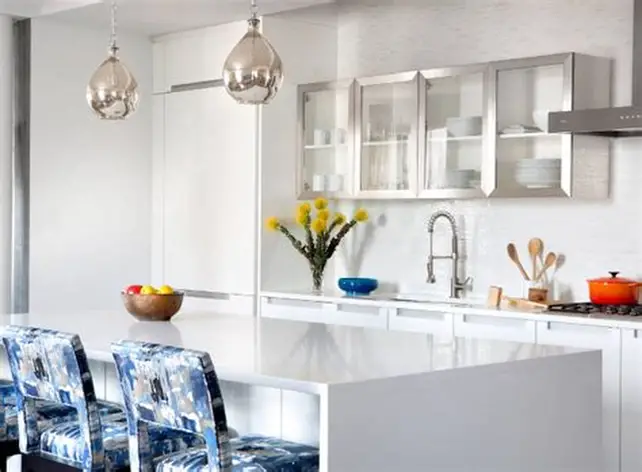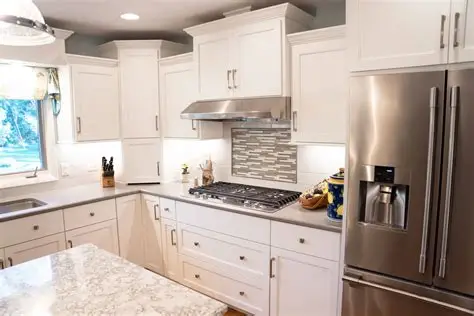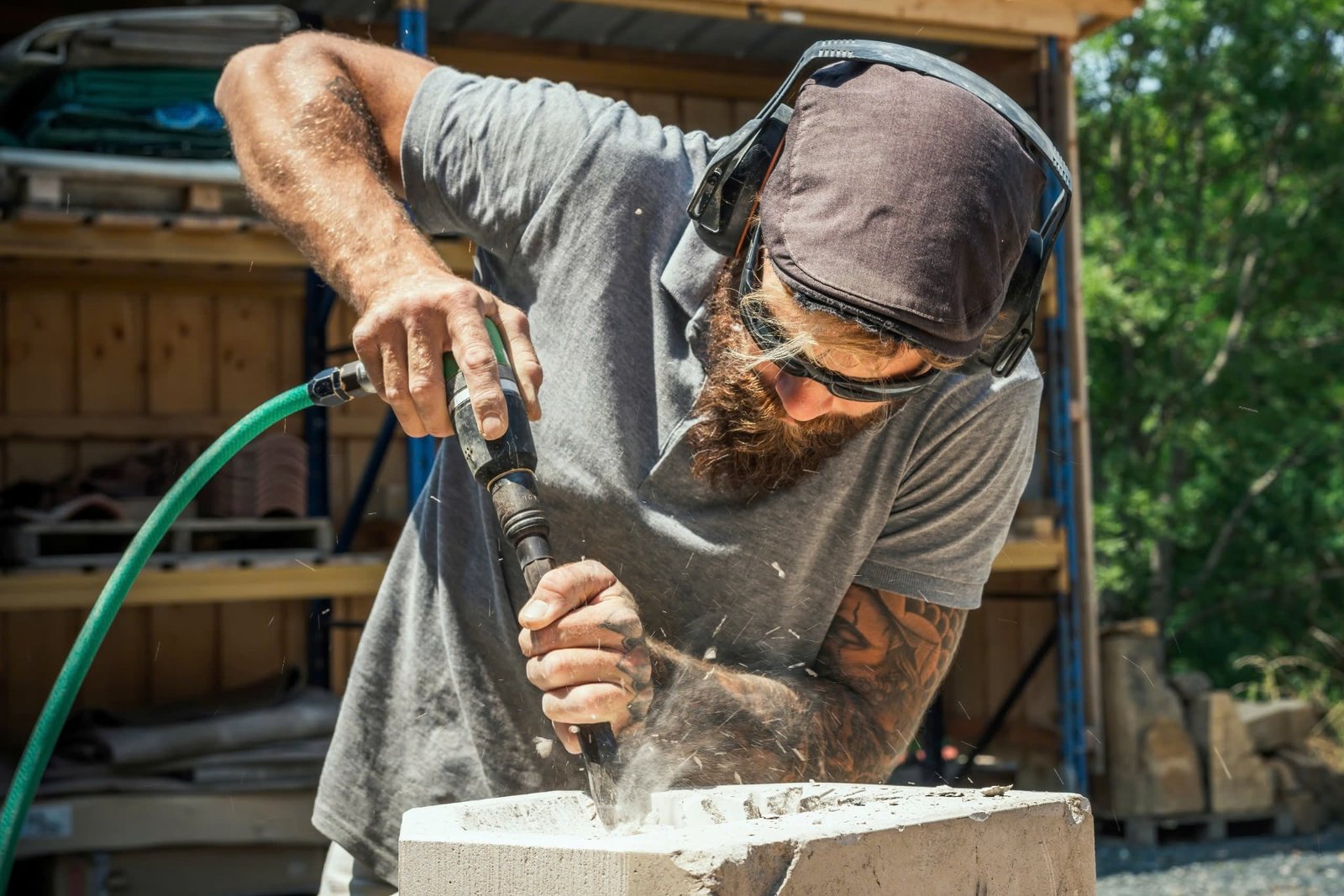
Granite is one of the strongest natural stones used in home design. Many homeowners wonder: can you iron on granite countertops?
Granite is one of the strongest natural stones used in home design. Many homeowners wonder: can you iron on granite countertops? Since granite is formed under intense heat and pressure within the Earth, it seems logical that it should handle the heat from an iron without issue. But the reality is a bit more nuanced. While granite is highly heat resistant, repeated or direct high-heat exposure in specific areas can cause long-term problems.
This guide explores whether granite makes a safe surface for ironing, what risks are involved, and how to protect your investment while still enjoying the benefits of durable, beautiful granite countertops.

Why Heat Resistance Matters for Granite Countertops
Granite is an igneous rock primarily composed of quartz and feldspar. These minerals give granite:
- High melting points and exceptional resistance to everyday cooking heat.
- Strength and durability to withstand heavy appliances and hot cookware.
- Natural porosity, which can absorb spills if not sealed.
In kitchens and bathrooms, granite is often chosen for its ability to handle hot pans, hair styling tools, and other heat sources. But ironing adds a twist—because it involves sustained, direct, and concentrated heat on a relatively small area.

Can You Place a Hot Iron Directly on Granite?
The Good News
- Granite can tolerate short bursts of heat from items hotter than an iron (like a pot straight from the oven).
- Polished granite countertops are less porous and less likely to absorb heat quickly.
- Granite does not scorch or burn easily.
The Risks
- Thermal shock: Placing a hot iron on a cold granite slab can create rapid expansion and contraction, potentially leading to cracks, especially near seams or cutouts.
- Sealant damage: Sealants applied to protect granite may degrade or discolor under constant heat exposure.
- Finish issues: A honed granite countertop may develop marks or dull spots from prolonged heat.
Bottom line: while granite can technically handle the heat from an iron, it’s not recommended to place one directly on the stone for long periods.
Safer Alternatives for Ironing on Granite
If you want to iron in a space with granite, here are some protective practices:
- Use an ironing mat or board: Always place a padded heat-resistant barrier between the iron and granite.
- Use trivets or hot pads: The same advice for hot pots applies to irons.
- Move the iron frequently: Avoid leaving it stationary on one spot.
Granite vs. Other Countertop Materials for Heat Tolerance
| Material | Heat Resistance | Safe for Ironing? |
|---|---|---|
| Granite countertops | Excellent | With protection |
| Quartz | Moderate | Not recommended (resin can scorch) |
| Marble | Fair | Prone to etching & thermal shock |
| Laminate | Poor | Can blister or delaminate |
| Solid surface (Corian) | Moderate | Heat pads required |
Granite remains one of the best natural stones for heat, but protection is still necessary.
Everyday Heat Risks Beyond Irons
Granite owners should also consider:
- Hot pans in the kitchen – Use trivets to avoid stressing seams.
- Hair styling tools in bathrooms – Curling irons and straighteners can leave marks if placed repeatedly in the same area.
- Outdoor kitchens – Granite countertops for outdoor kitchens face added stress from grills, direct sun, and temperature swings.
Care & Maintenance Tips for Heat Protection
- Seal regularly to reduce porosity and protect against stains.
- Avoid extreme temperature swings (cold liquids followed by hot pans).
- Keep trivets and mats handy near cooking or styling areas.
- Clean with pH-neutral cleaners to preserve the finish.
- Inspect seams and edges regularly, as they are most vulnerable to heat stress.
For a deeper guide, see How to Clean Granite Composite Sinks and Can Granite Countertops Take Heat?.
Granite Countertops in Kitchens vs. Bathrooms
- Granite kitchen countertops: Heat from cookware is common, but protect the stone with trivets.
- Granite bathroom countertops: Irons, hair tools, and hot water are everyday risks—use mats to preserve shine.
- Black granite countertops: Show marks and water spots more easily but remain durable.
- White granite countertops: More porous, requiring consistent sealing.
Where to Buy & Who Can Install Heat-Resistant Granite
If you’re considering upgrading, explore:
- Local granite fabricators for tailored installation.
- Granite countertop showroom [location] to see polished, honed, or leathered finishes in person.
- Wholesale granite countertops suppliers for cost savings.
- Top-rated granite countertop installers near me to ensure professional handling with proper support.
Pro tip: Fabricators rely on advanced handling equipment such as Forklift Boom FB1-2720 and stone transportation tools to keep slabs intact.
FAQs on Heat & Granite
Does ironing damage granite countertops?
Not usually, but prolonged heat can weaken sealants or stress seams.
Can granite burn or scorch?
No, granite won’t burn. But adhesives and sealants can discolor.
Is granite more heat resistant than quartz?
Yes, granite handles higher temperatures than quartz resin blends.
Can you place hot pans and irons on granite without trivets?
Technically yes—but best practice is always to use heat protection.
Final Thoughts
So, can you iron on granite countertops? Technically yes—granite is incredibly heat resistant and won’t scorch from an iron. But best practices say: don’t do it directly. Protect your investment with mats, boards, or trivets to keep your slab looking flawless for decades.
With simple precautions and regular care, your custom granite countertops—whether black, white, brown, or even blue pearl granite countertops—will remain stylish, functional, and resilient against heat and wear.
Helpful Anchor Links
- Professional stone handling: Toolrange Asia
- Industrial lifting solution: Forklift Boom FB1-2720
- Sink & stone care: How to Clean Granite Composite Sink
- Heat guide: Can Granite Countertops Take Heat?

